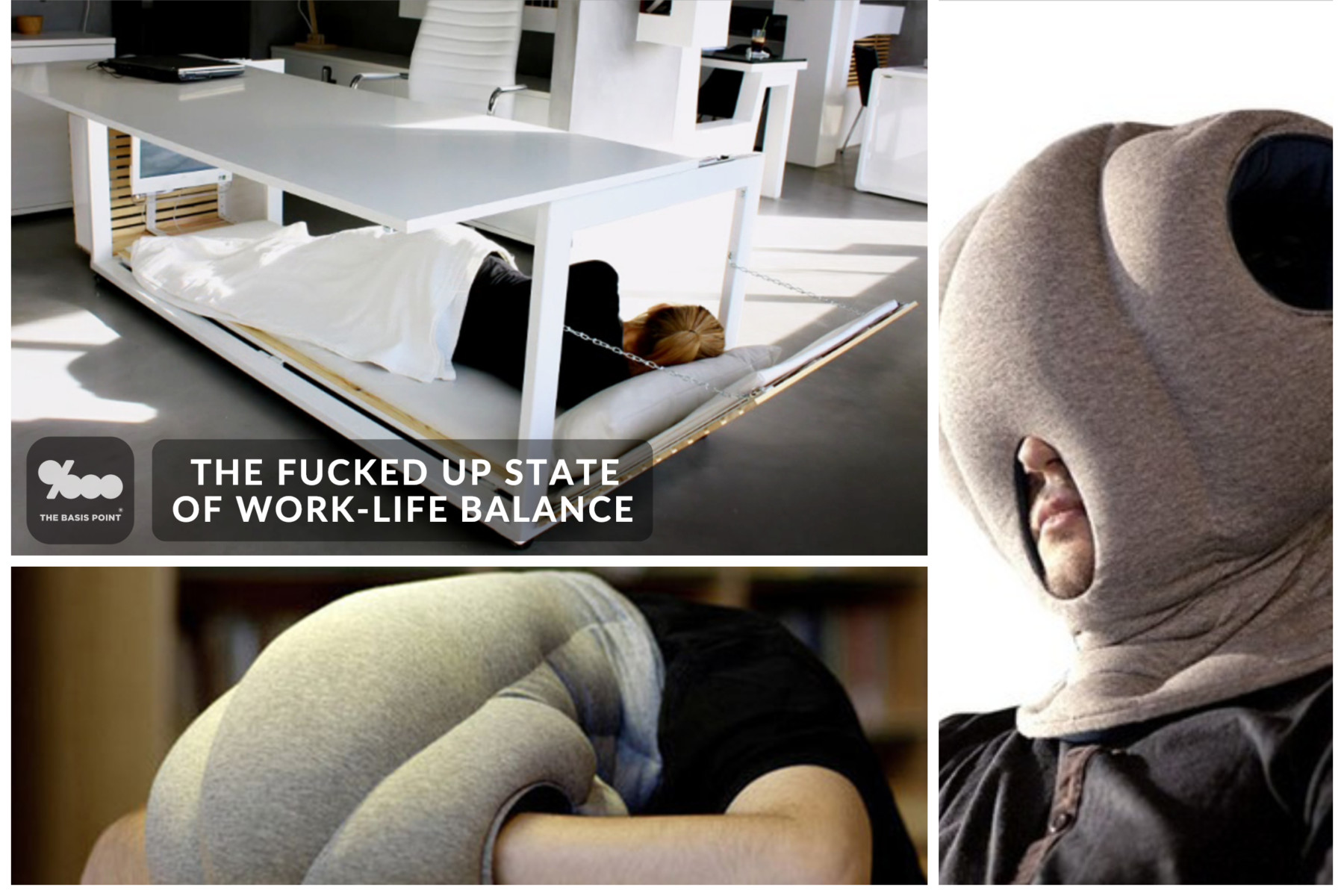How Do Finance Companies Sell To & Recruit A Burned Out Generation?

As a twentysomething constantly wondering if I’m making the right choices about money, life, and work while fighting off the exhaustion that comes along with that, it was cathartic to read this Buzzfeed story from this weekend about an older millennial struggling to make sense of it all.
Anne Helen Petersen, the author, sums up many of the worries I’ve expressed in hundreds of casual conversations laced with existential dread.
Millennials are well into adulthood: The youngest are 22; the oldest, like me, somewhere around 38. That has required a shift in the way people within and outside of our generation configure their criticism. We’re not feckless teens anymore; we’re grown-ass adults, and the challenges we face aren’t fleeting, but systemic…
So what happens when millennials start the actual search for that holy grail career — and start “adulting” — but it doesn’t feel at all like the dream that had been promised?
Anne’s story is part modern history, part memoir. She traces the macro and micro financial story of her age cohort: how the dot-com bubble bursting and the 2008 crash pushed them into a cycle of endlessly educating and indebting themselves for good jobs that never materialized. She ponders the psychological cost of instant access to the digitally processed lives of strangers on social media, and the instant access to ourselves that our employers have through smartphones.
Efficiency was supposed to give us more job security, more pay, perhaps even more leisure. In short, better jobs.
Yet the more work we do, the more efficient we’ve proven ourselves to be, the worse our jobs become: lower pay, worse benefits, less job security. Our efficiency hasn’t bucked wage stagnation; our steadfastness hasn’t made us more valuable. If anything, our commitment to work, no matter how exploitative, has simply encouraged and facilitated our exploitation. We put up with companies treating us poorly because we don’t see another option. We don’t quit. We internalize that we’re not striving hard enough. And we get a second gig.
I’ve grappled with all the impossible questions Anne does in this story, and all my friends have too. How are we supposed to make this life thing work? How do we reconcile the life we have with the promises we were made as kids?
As I start the next chapter of my career here at The Basis Point, there’s hope: part of my job is to search for answers to these questions and share them with you (if they can be answered at all). I know what it’s like to wade through life through a fog of debt and tiredness. I know the fatigue of never feeling like you can turn your brain off and recharge.
After reading Anne’s piece, I keep thinking about two main threads:
1. Am I just a whiny millennial or is the new state of work bearing down on us all?
Before you cast me off as a cliche whiner, think about whether you already feel behind on this first week of 2019, and are telling yourself you’ll wake up early Saturday to catch up.
This isn’t a millennial thing, it’s a state of work thing. “The Future of Work” is a narrative largely designed by mastermind investors to make workers feel empowered while maximizing efficiency.
This is where things like unlimited paid time off (PTO) come from. My sister worked at a company with unlimited PTO, but never knew if she was taking too much time off or if she was being judged by her superiors, even though she worked every weekend and late at night. I know she’s far from alone in this. And great employee messaging aside, remember unlimited PTO is a clever way to lower employer accrual costs.
I asked my colleague Julian what he thought of my feelings and the Buzzfeed article as a Gen Xer who struggles with these issues like everyone else, and he said “I have friends with a lot of years on you who ask me why it seems like I manage to adult so well.”
That stuck with me—if people close to or in their forties are still figuring this out and struggling with work-life balance, then this isn’t a millennial problem. This is a workforce problem.
To make sure that sinks in, know this: we didn’t just pull goofy stock photos for the image above. Those are actual products that people buy to SLEEP AT WORK. WTF??!!
2. How do consumer finance companies sell to and recruit an overworked and burned out generation?
Compassion is lost in this Future of Work narrative. Efficiency prevails. Instagram stories of waking up at 4:00 am get picked up by mainstream media as gospel.
And compassion doesn’t mean being soft.
In selling to all of us, finance companies recognize there are two main approaches to break through to us: compassion or speed/ease. We covered this in detail last week, and spoiler alert: you must have both.
Tech has helped companies get better at executing on this. It started in retail with being able to shop and return stuff from home instead of needing a day to exchange a pair of pants. And now personal finance is finally getting to the point of being able to manage on your phone instead of your local branch office.
But there are still offices where people are making all this magic happen for us, and if finance companies can blend compassion with speed/ease as well for employees as they do with consumer marketing, then we’re getting somewhere.
But we’re not there. And ironically, marketing roles are a prime case study. The digital era has made those the most high-pressure, high-turnover, sleep-at-your-desk roles in most financial orgs.
I don’t need to tell you that the norm is 60-70 hour weeks for months straight in offices with open floor plans, germy bean bag chairs, and end-of-year cost-of-living raises at best.
No wonder people are burned out.
The next questions are: what will those in positions of power do when the burnout shoe drops, and how can orgs (or at least teams) find some compassion that’s not total BS. Lots more coming on this, so stay tuned as we dive deeper.
___
Reference:
– How Millennials Became The Burnout Generation (Buzzfeed)

